
The Difference Between A Wedding Coordinator and Wedding Planner
When you’re planning a wedding, you really don’t know what you don’t know; and there’s a very high likelihood you haven’t done it before. That’s

Plan, enquiry & save on the go.


Plan, enquiry & save on the go.

Are you a supplier? Click here
Please sign into your account
Fields marked with an asterisk (*) are required.
Fields marked with an asterisk (*) are required.
You can share your Events with anyone you would like to be a part of your planning process. They must have an existing account to view the Event, and will need to archive any active Events on their account, in order to successfully share this Wedding.
By doing this, you will be deleting the event details. You will not be able to retrieve this. Are you sure you would like to continue?
Are you sure you would like to continue?
By doing this, you will be deleting this event details. You will not be able to retrieve this event data. Are you sure?
Are you sure you want to delete all the details for this guest - you will not be able to change the later.
If you would like to cancel your Membership, click below to ensure payments are no longer billed to your account. Your profile will remain active until the end of your current billing period.
Don’t leave, we will miss you!
If you would like to cancel your Membership, click below to ensure payments are no longer billed to your account. Your profile will remain active until the end of your current billing period.
Your Membership will override any existing features, if you choose to switch your plan.
This membership plan provides you with the following features:

By doing this, you will be deleting your Profile, Billing and Membership details. You will not be able to retrieve any account data. Are you sure?

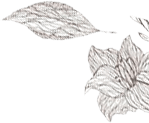
13th October 2023

Ever since you were growing up, you or your partner may have heard about Karva Chauth (or Karwachauth): the beautiful & significant festival in Hindu culture, where traditionally a wife fasts for her husband from sunrise to moonrise, praying for their longevity and wellbeing.
Over the years, we have seen Karva Chauth evolve into a vibrant tradition that’s all about love, commitment, sacrifice, and equality. One of the biggest shifts has been where both partners will sometimes observe fasts for each other, or the non-fasting partner supports their fasting partner in a totally unique way.
If you are a newlywed, or newly-engaged, or even someone whose been observing the fast for years; Karva Chauth may seem quite daunting. As one of the ‘nirjala’ fasts in our culture, you typically don’t eat food or drink water during the entire day. Some individuals find it easier than others, and some families also have their own variations which are more suitable!
The beautiful occasion is also a celebration of womanhood, as often women will celebrate and spend the day / evening with their sisters, cousins, mum, mother-in-law, and other women in their community.
So many couples will tell you that this wonderful fast is a 24-hour rollercoaster of emotions, love, and lots of fun! In this blogpost, we cover everything about Karva Chauth: the significance, the rituals, the preparations, and the main meal (definitely our favourite bit!)

Before we get into it, it’s important to note that Karva Chauth is celebrated in various regions with unique customs. In some areas, women might not eat or drink anything throughout the day, while in others, they might have a meal before sunrise. The rituals and ceremonies also differ based on local traditions and beliefs.
The history of Karva Chauth is deeply rooted in our culture and tradition. Its origin can be traced back to the Mahabharata, and there are numerous stories that each family and part of India believes.
Ultimately, the name ‘Karva Chauth’ itself holds historical significance. ‘Karva’ is a Hindi word for an earthen pot, while ‘Chauth’ means the fourth. The festival is celebrated on the fourth day of the Kartik month in the Hindu calendar, coinciding with the harvest season.
Traditionally, women would gather in groups, adorned in their finest attire and jewellery, carrying beautifully decorated Karvas. These earthen pots would be filled with wheat and other grains, symbolising the blessings of abundance. The women would come together, form a circle, and exchange Karvas as part of the celebrations.
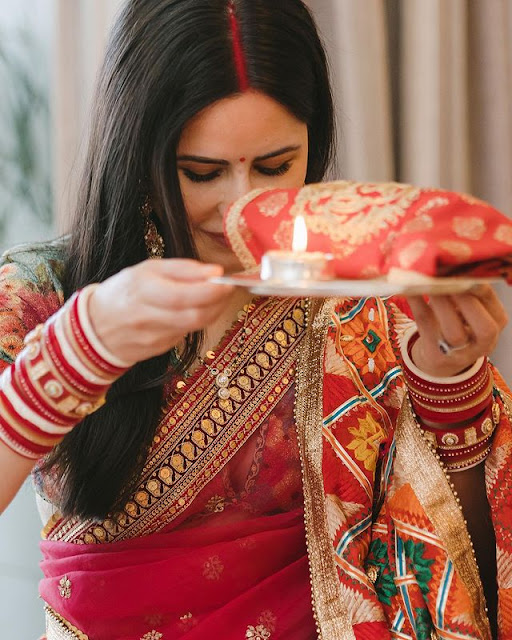
Preparation for Karva Chauth starts days in advance – it’s like prepping for a wedding all over again (ok, maybe not quite as extreme or stressful)! However, there’s still a large element of dressing up, getting on your favourite outfit & jewellery, maybe even some mehndi, and being in the right headspace to observe the fast for your special someone.
Our biggest tip for preparation is to also make sure you are keeping healthy and hydrated 24-48 hours before Karva Chauth, this includes keeping hydrated by drinking enough fluid, eating clean and healthy to avoid foods that upset your stomach, and physically / mentally exercising your body and mind.
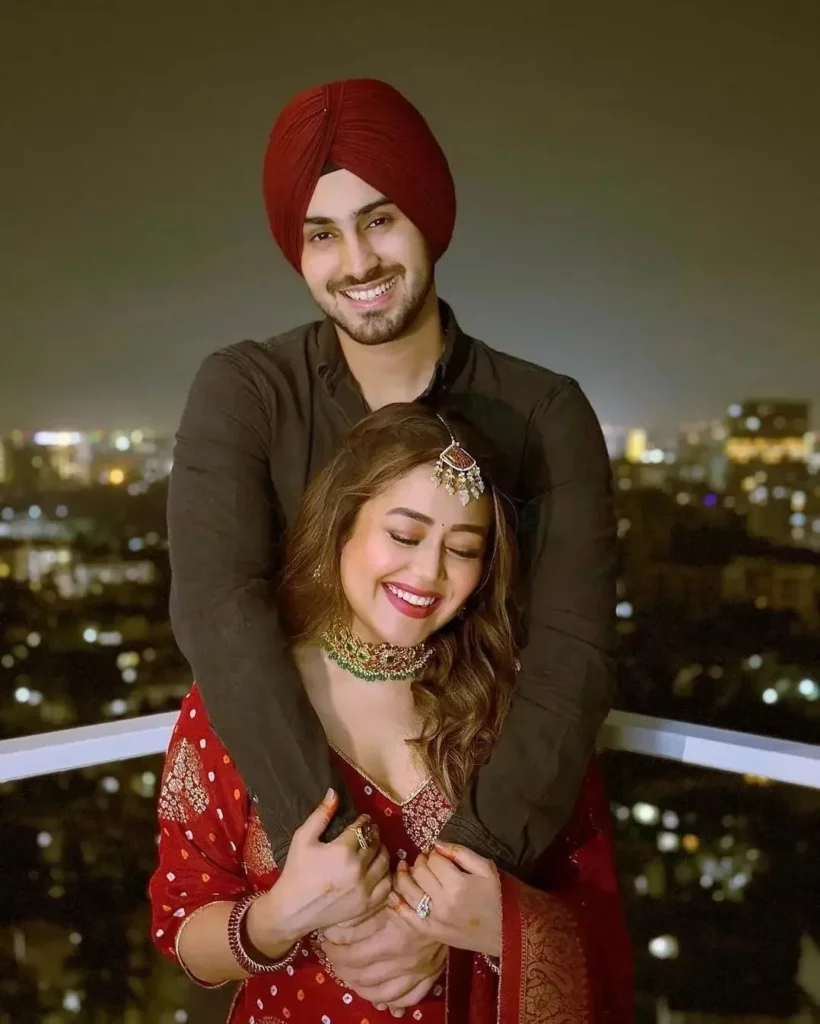
The morning of Karva Chauth is called ‘Sargi’, which is the meal you have before you start the fast. It’s often eaten just before the sun rises, typically around 3-4am, but this varies depending on where you are based.
We see Karva Chauth as a beautiful tradition that you and your partner support each other in. Tons of couples say that the sweetest gesture of solidarity is when their partner wakes up with them to keep them company whilst they each their Sargi.
In some families, the mother-in-law sends Sargi to her daughter-in-law, as a token of her love, blessing, and wishes to successfully observe the fast.
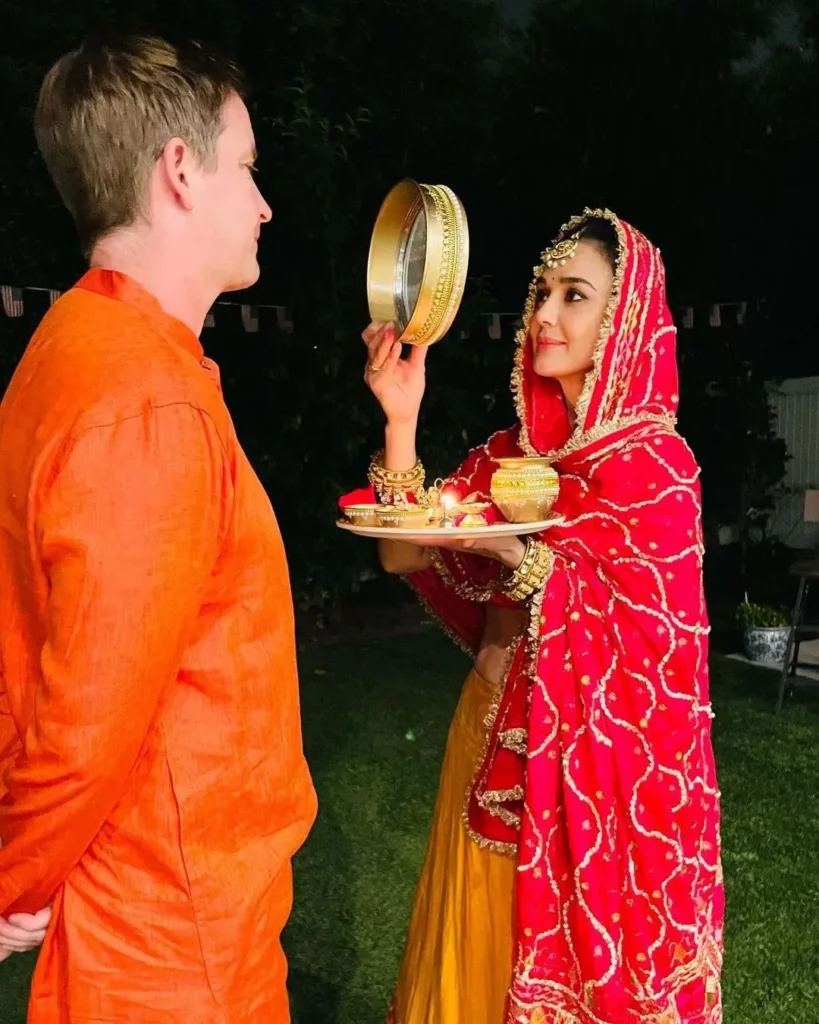
Whilst it can be tempting to get some quick energy with sugary foods for Sargi, especially when you might have ladoos and delicious Indian sweets in the house, you want to avoid these! They will often not be a form of long-lasting energy, and will also make you quite thirsty.
Dry fruits, fruits, and carbs will be your best friend! These foods are rich in fibre and protein, to help you preserve your energy throughout the day. In addition to this, many people suggest to avoid foods that make you feel very ‘heavy’, as this will actually disrupt you during the day. Opt for meals like porridge, multigrain rotis, paneer, and veggies instead.
It’s also recommended that you drink a few glasses of warm water, as opposed to cold. As tempting as it can be, also try and avoid caffeine, which will only dehydrate you!
It is also highly recommended that, if you are on any medication, to remember to take it with your Sargi, either before, during or after, depending on your prescription – don’t skip this one!
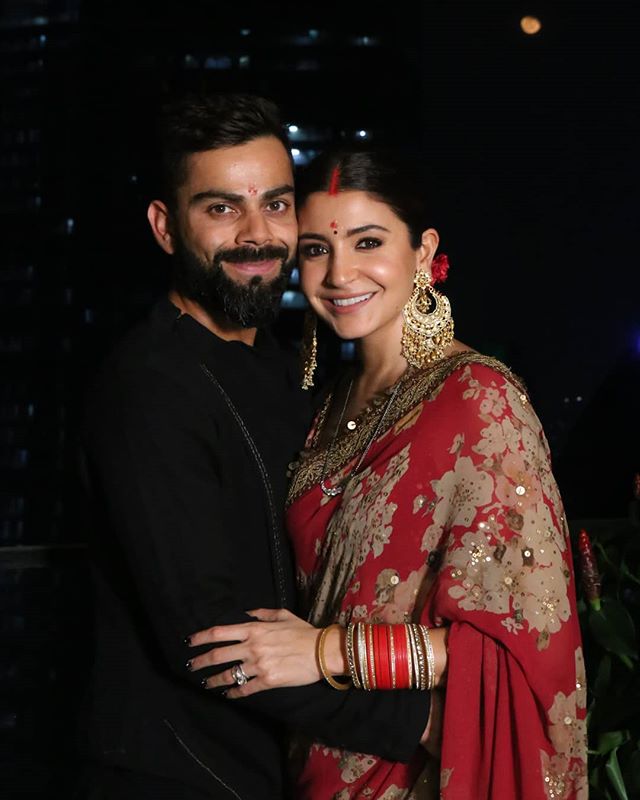
The actual fast will be something that your body isn’t directly used to. It takes a large element of physical and mental constraint. If you have ever fasted before, in any small capacity, it’s important to understand what your body and mind needs.
Sometimes, people choose to take the day of Karva Chauth off of work, to avoid over-exertion, whilst others believe that working is a good way to keep yourself busy. Luckily, we live in a world of working-from-home, which could be a wonderful solution and happy-medium to consider.
Other individuals choose to meditate, as typically any forms of heavy physical exercise should be avoided. This is particularly important for your mental wellbeing and strength.
It’s also important to ensure that those you interact with are aware of the fast that you are observing, especially if its people at work, so that they can be mindful of it. Also, it’s a beautiful way to share more about our culture, with those who may not be aware of it.
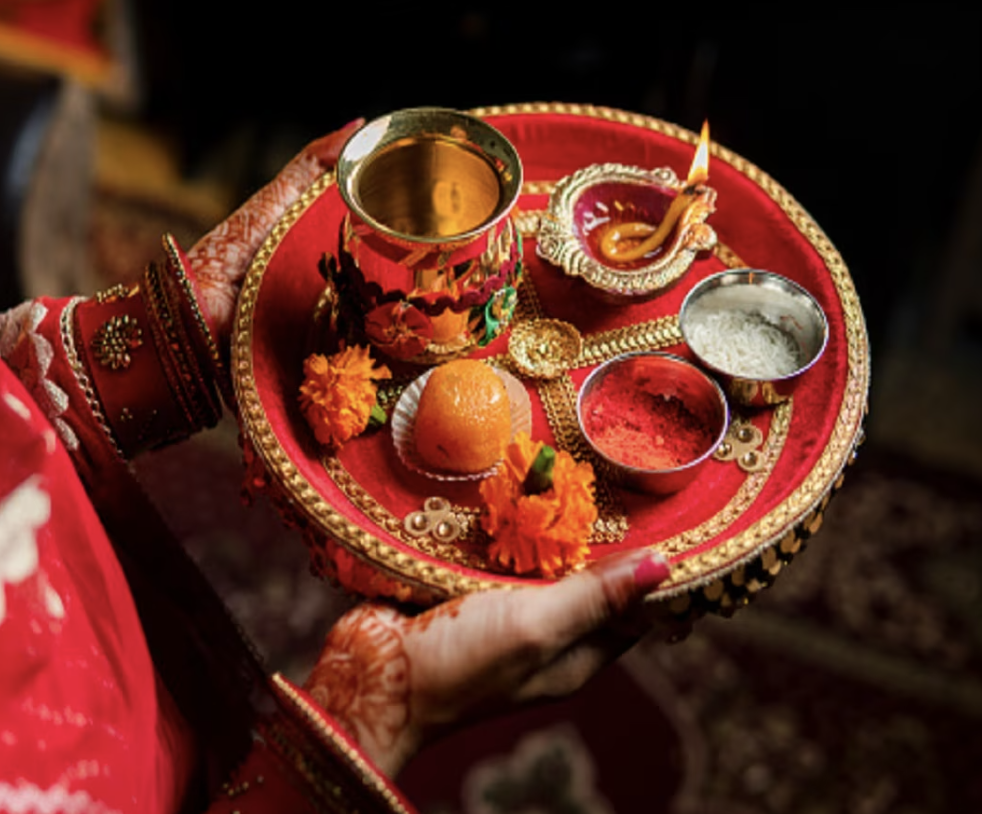
When it comes to preparing your thali for the Chand (moon) puja, there are a few items which you should keep, but of course, this varies depending on your family & tradition. Have a look at them and their significance:
● Fruit – This is generally placed as an offering for your evening puja.
● Baya – This is a gift that a daughter-in-law gives to her mother-in-law, which could be in the form of food, outfits or jewellery. If your item is too big for the thali, you can keep dry fruit of coins as a placeholder.
● Mithai – traditionally, one of the first things you eat after the chand puja should be something sweet. Be sure to pick out your favourite one!
● Ghee Diyas – One will often be for your evening puja and one will be for your chand puja.
● Chunni / Dupatta – This is used to cover your thali and protect from nazar (evil eye).
● Steel glass – Filled with water, milk, pinch of sugar and rice – the first thing you drink as you break your fast.
● Sieve – this is required for your chand puja – a necessity!
● Sindoor – as a sign of a married woman, sindoor is often placed in the thali with a pinch of rice.
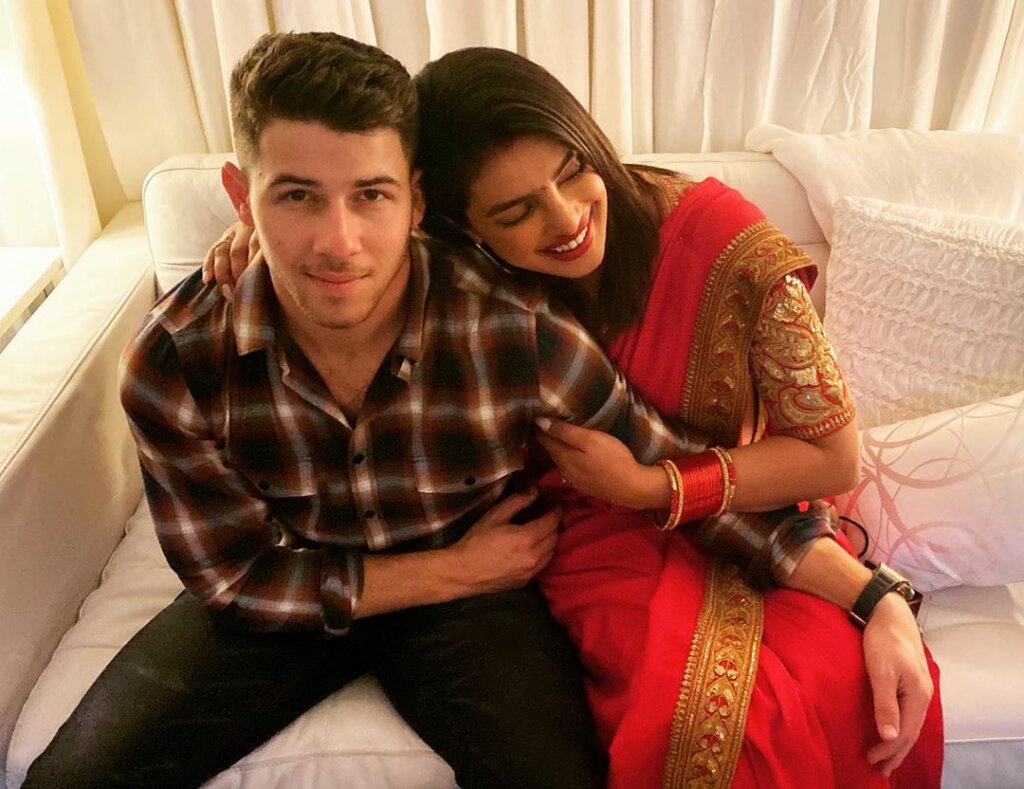
If you’ve been a Bollywood-junkie growing up, you would have seen the super emotional, yet beautiful, scene where the moonrises and it’s time to see peer through the sieve to see your partner – well it’s finally your time to live the modern day fairytale!
When it comes to breaking your fast, you want to wait until the moon is visible. Traditionally, you will light the diya and place it inside the sieve. You will then look through the sieve to see the moon, and then look directly at your partner through the sieve straight after.
At this point, your partner feeds you your first sip of water and food, and you count your blessings on this auspicious day.
Now, it’s the long-awaited moment of finally breaking your Karva Chauth fast! Another beautiful evolution of this tradition is where your partner will gift you or cook a meal for you to celebrate.
That’s why, we have paired up with the incredible team at Yhangry who have put together a Karva Chauth menu for you and your partner – either for your meal on the day with your partner and families, or as an intimate dinner for you to celebrate with a few weeks after.
Menus can be availed until 15th November 2023.
Have a look at the 3 incredible menus:
Starter:
● Aloo Papdi Chaat – is a traditional street food snack found all over India, with crunchy, soft, and fluffy textures, all smothered in tangy, sweet, and hot chutneys.
Mains:
● Paratha or Roti – Indian stuffed Bread
● Spinach & paneer curry – Known as one of the most delicious vegetarian dishes in Indian cuisine, saag paneer is a popular side dish. It’s rich in calcium and folate from the spinach and is gluten-free, too
● Sprouted Moong Bean Curry – Tasty & Healthy curry perfect for opening a fast
● Dry almonds and Cashew nuts
● Veg Rice
Dessert:
● Kheer
Canape:
● Asian Vegetable And Tofu Rice Paper Rolls
● Achari Paneer, Herb Chutney
● Biryaniarancini
• Courgette Rolls With Masala Ricotta, Asparagus Tips
Starter:
● Sweet Potato Chaat, Tamarind Sauce, Besan Pearls
Main Dish:
● Paneer Tikka Masala, Crushed Olive Potatoes, Tenderstem Broccoli, Achari Carrots
Dessert:
● Parsnip And Walnut Halwa
Starter:
● Beetroot Cutlet
Mains (to share)
● Pindi Chole
● Shahi paneer
● Dal makhani
● Cumin peas pilaf rice
● Assorted Naan bread
Dessert:
● Mango Malai Cake
Sides:
● Boondi Raita
● Pickles
● Chutney
● Poppadum

When you’re planning a wedding, you really don’t know what you don’t know; and there’s a very high likelihood you haven’t done it before. That’s

When it comes to your wedding, you want everything to be perfectly unique to you, as a couple, from the décor to the food.

Ok, this can be quite a controversial one in our culture, as white was traditionally never worn at weddings, due to it’s close association with

As soon as you hear someone say ‘hire a wedding planner!’ – alarm bells often go ringing and everyone automatically think the budget of your

Wedding season is upon us! The time for wearing your favourite lehenga, glamming up with incredible jewels, and incredibly elaborate cakes. Regardless of how soon or far your wedding is,

As the years go by, more and more South Asian couples have been opting for civil wedding ceremonies; and no matter how big or how

Welcome to Real Weddings: where we speak to real couples about their wedding planning process, the lead up to the big day, and any advice

“Love is a universal language that speaks volumes when we celebrate it with pride.” Happy Pride Month! With every pride wedding, we take another step

Being a 2023/24 bride or groom is stressful. There are so many checklist items and tons of shopping lists that you need to take care


Sign In with
Or sign up here